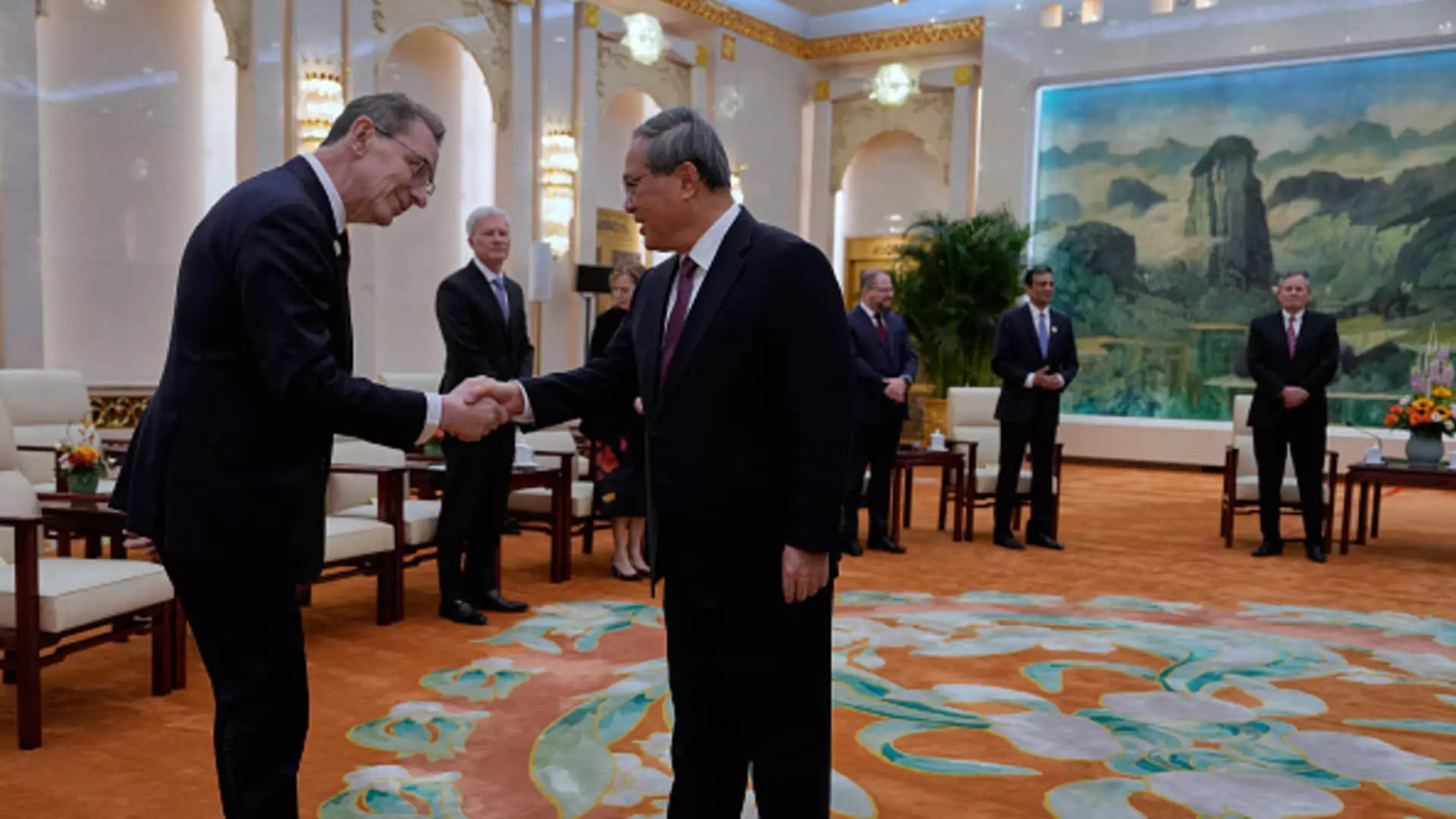In an unprecedented move, U.S. Republican Senator Steve Daines recently led a delegation of American executives to Beijing, marking a significant moment in a fraught U.S.-China relationship. This meeting, the first of its kind since former President Trump assumed office, underscores the urgent need for renewed engagement between two of the world’s largest economies. Daines, a veteran of the complicated U.S.-China trade landscape, brought with him leaders from major corporations who embed the complexities of doing business in China.
The fact that Daines chose to meet with Chinese Premier Li Qiang amidst increasing tensions over tariffs signals a pivotal shift in the narrative around U.S.-China relations. Many observers have used terms like ‘tension’ and ‘confrontation’ to describe the current state, but Daines’ delegation represents hope for constructive dialogue. Instead of a combative stance, this meeting advocates for communication, and that could serve as an essential pathway toward resolving ongoing trade disputes.
Bipartisanship and Business Acumen
Daines’ specific involvement in negotiations over U.S.-China trade and the experience he brings from his years working in China adds valuable context to his approach. What stands out in these proceedings is the seamless integration of political diplomacy with business interests. By bringing CEOs from notable companies like Qualcomm and Pfizer into the fold, Daines effectively melds business needs with national interests. This distinction is crucial; foreign investments in China are not only beneficial for the Chinese economy but also enhance U.S. businesses’ bottom lines, creating a win-win scenario.
Interestingly, Daines’ assertion in the meeting—highlighting the combined 275 years of experience these seven companies have in China—is not just a bragging point; it’s a reality check. Businesses have been navigating this complex landscape long before the current political climate emerged, and their wealth of experience should be utilized to widen the scope of U.S.-China dialogue.
The Shadow of Fentanyl and Tariffs
Yet, behind these hopeful discussions lurks a more profound dilemma. The opioid crisis in the United States casts a long shadow over any potential economic cooperation. Daines’ call for China to put a halt to the flow of fentanyl precursors reflects the seriousness with which the U.S. government and public view this issue. It’s a stark reminder that while nations may seek a cooperative business atmosphere, pressing humanitarian concerns cannot be overlooked.
What’s troubling is that the permanent solution to this problem seems to clash with a meaningful engagement strategy. As long as the fentanyl crisis persists, the U.S. may find itself in a precarious position, balancing business interests against domestic security concerns. Higher tariffs and punitive measures may become a tempting way for politicians to show they are taking action, undermining the very dialogue that Daines is attempting to foster.
Dialogue Over Confrontation: A Catchphrase that Needs Substance
Premier Li Qiang’s call for “dialogue over confrontation” is compelling. However, one must wonder: how are we defining this dialogue? Rhetoric surrounding cooperation often rings hollow when not matched with tangible results. China’s willingness to listen must also be met with the U.S. framing its trade policies with a touch of empathy rather than sheer force. The bleak “zero-sum competition” rhetoric has permeated much of the narrative when talking about international relations, especially in business.
For those who align with the center-wing liberalism perspective, the ideal is a clear rise above nationalistic sentiments, focusing instead on collaborative outcomes. This meeting, while important, should amplify questions about how far we are willing to go in reconciling differing priorities between both nations. It’s not only achieved through multinationals but also through smaller, innovative firms creating niches in these emerging markets.
The Importance of Relationships
In navigating the labyrinth that is U.S.-China relations, the act of building relationships cannot be emphasized enough. Daines’ presence and initiative highlight that good relationships often lead to smoother negotiations. Power is not merely in enforcing policies but in fostering networks built on trust, integrity, and mutual benefit.
As this historic meeting reveals, the path ahead is rocky but navigable. If both sides can embrace a spirit of informed openness, there lies potential for not just economic benefit, but a deeper peace that stretches beyond mere transactions. In the end, genuine human relationships might just be the most compelling currency we have in solving our pressing global challenges.


Leave a Reply